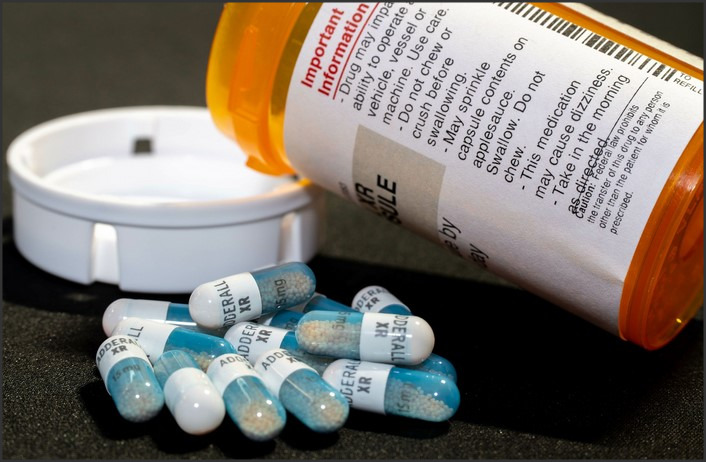Adderall for Adults: ADHD Medication and Treatment Guidelines

Adderall is a prescription medication that is commonly used in the treatment of Attention Deficit Hyperactivity Disorder (ADHD) in adults. It is a combination of two stimulant drugs, amphetamine and dextroamphetamine, which work by increasing the levels of certain chemicals in the brain that help with focus, attention, and impulse control. As a central nervous system stimulant, Adderall can help increase the ability to pay attention, stay focused on an activity, and control behavior problems. It may also help improve listening skills and organize tasks. Despite its effectiveness, Adderall is a drug that must be used under the strict supervision of a healthcare provider due to its potential for abuse and dependence. It is part of a comprehensive treatment program for ADHD that may include other measures (psychological, educational, social) as well.
Understanding Adderall for Adults: A Comprehensive Guide on ADHD Medication and Treatment Guidelines
Adderall, a prescription medication, has gained significant attention in recent years due to its effectiveness in treating Attention Deficit Hyperactivity Disorder (ADHD) in adults. This medication, a combination of amphetamine salts, works by increasing the levels of certain chemicals in the brain that help with focus, attention, and impulse control. As such, it has become a cornerstone in the management of adult ADHD. However, understanding the intricacies of Adderall, its usage, and the guidelines for treatment is crucial for those considering this medication.
Firstly, it is important to note that Adderall is not a one-size-fits-all solution. The dosage and frequency of administration vary depending on the individual’s specific needs and the severity of their symptoms. Typically, a healthcare provider will start a patient on a low dose and gradually increase it until the desired effects are achieved. This gradual titration helps to minimize potential side effects, which can include insomnia, decreased appetite, and increased heart rate or blood pressure.
Moreover, Adderall is not intended to be a standalone treatment for ADHD. It is most effective when used in conjunction with other therapeutic strategies such as cognitive-behavioral therapy, lifestyle modifications, and psychoeducation. Cognitive-behavioral therapy can help individuals develop coping strategies for managing their symptoms, while lifestyle modifications such as regular exercise, a healthy diet, and adequate sleep can enhance overall well-being and potentially reduce the severity of ADHD symptoms. Psychoeducation, on the other hand, involves learning about ADHD and how it affects one’s life, which can be empowering and reduce feelings of shame or guilt associated with the disorder.
Furthermore, it is essential to understand that while Adderall can be highly effective, it also has the potential for misuse and addiction. This is particularly true for individuals who do not have ADHD and use the medication for its stimulant effects, such as increased focus and energy. For this reason, Adderall is classified as a Schedule II controlled substance, meaning it has a high potential for abuse and its use must be closely monitored by a healthcare provider.
In addition, long-term use of Adderall can lead to tolerance, where higher doses are needed to achieve the same effects, and dependence, where the body relies on the medication to function normally. Therefore, it is crucial for individuals taking Adderall to have regular check-ups with their healthcare provider to monitor their response to the medication and adjust the dosage as needed.
Lastly, it is important to remember that not everyone with ADHD will benefit from Adderall. Some individuals may respond better to other medications or non-pharmacological treatments. Therefore, it is crucial to have open and honest discussions with your healthcare provider about your symptoms, treatment goals, and any concerns you may have. This will help ensure that you receive the most appropriate and effective treatment for your unique needs.
In conclusion, Adderall can be a highly effective treatment for adult ADHD when used appropriately and under the guidance of a healthcare provider. However, it is not a cure-all and should be used as part of a comprehensive treatment plan that includes other therapeutic strategies. Understanding the complexities of Adderall and the guidelines for its use can help individuals make informed decisions about their treatment and ultimately lead to better outcomes.In conclusion, Adderall is a commonly prescribed medication for adults with ADHD. It helps to increase attention and decrease impulsiveness and hyperactivity in patients with ADHD. However, it’s important to note that it can have side effects such as insomnia, anxiety, and increased heart rate. Therefore, it should be used under the supervision of a healthcare professional following the appropriate treatment guidelines.